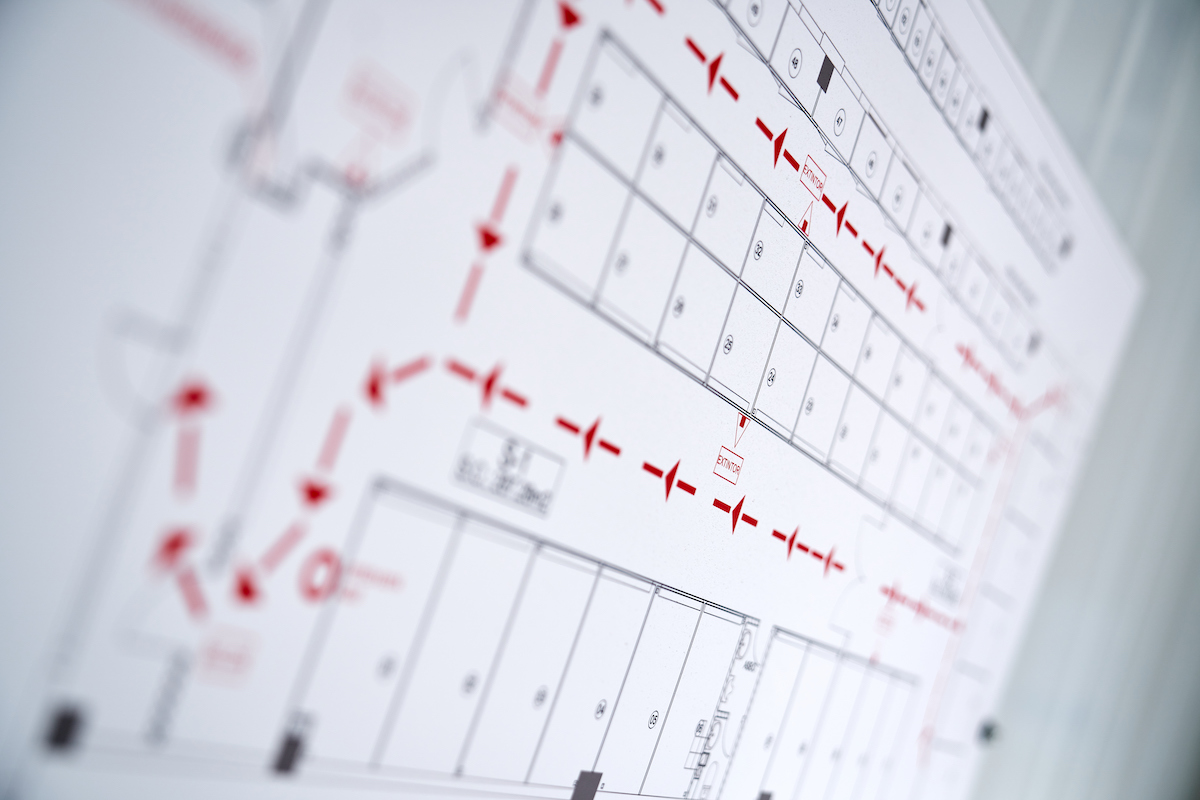Football plays, sheet music, mathematical concepts . . . keep practicing and you will improve. Throughout our lives, this idea is ingrained within us. We know that our best chance for improving lies in getting involved. It lies in the “doing.” Albert Einstein once said, “In theory, theory and practice are the same. In practice, they are not.” You can’t watch your teammates play football and expect to be a better football player. You wouldn’t stand to the side as the band plays on and think you’ll be better at playing your instrument. Many of us have learned the hard way that skipping math homework often leads to a lack of needed skills. With all of this in mind, it only makes sense to prepare for emergencies by going through the motions of a carefully constructed plan. Drills for fires, active shooters, lockdowns, and sheltering in are essential for people to fully understand what is expected of them in a real emergency.
Importance of Drills
Each time a drill is held, all those involved are developing survival skills. Yet, we often say “This is only a drill.” There is a lot of danger jam-packed into that word “only.” It diminishes the importance of the drill. It makes students feel like they can talk during a lockdown drill and tempts employees to stay in the building during a fire drill . . . just that one time. But each time you don’t take a drill seriously, it’s a missed opportunity for you to become better at following the rules and at knowing the safety protocols of your organization. For example, the simple act of locking doors has proven to be the number one life-saving device in an active shooter situation as gunmen are usually looking for targets that are easily accessible. Locking doors should become habit after you have gained experience from repetition of drills so that if you are ever in panic mode, you will still naturally lock the doors. As the saying goes, don’t just practice until you get it right, practice until you can’t get it wrong.
Preparing for and Scheduling Drills
According to OSHA, not all employers are required to establish an emergency action plan. Many organizations are still spending time and money to define their safety plans, but few are preparing appropriately and holding drills to verify that people are ready for actual emergencies. Since most people start learning about drills as children in school, it’s human nature to look for an authority figure during the drill or emergency. All employees should be empowered with information so that they can use it to protect themselves. Organizations should also consider holding drills at regular intervals to account for things like varied shifts or new employees.
Although it might be ideal for schools to hold drills when they would be least disruptive to the school day, the schools should make sure to practice in a realistic manner, such as during lunch hours or in between classes. There is evidence that simulating some emergencies can be traumatic for children. Therefore, it’s important to note that drills can simply be preparation for any threat by using direct, objective language. The I Love U Guys Foundation, for example, sees it as an opportunity to create “muscle memory” through the trauma-free terminology of their standard response protocol. The idea is that once children learn what they need to do and how to do it, they must continually practice these perishable skills and then their muscles will remember and they will use them in a crisis.
Choosing Whether or Not to Announce the Drills
The main reasons for holding drills are to train people to react appropriately in an emergency and to test to see how well people will perform during the emergency. Organizations are tasked with deciding whether they can accomplish these tasks better if they announce the drills or not.
A case for announcing drills is so that employees can practice specific skill sets. Sometimes the drills are announced simply out of convenience. By removing the element of surprise, employees do not react with the same sense of urgency. Businesses can incorporate obstacles into their simulations to see what would happen. For example, without actually blocking any exits, they can label some exits as “blocked” and see how the employees would react. Hopefully, if too many people flock to a certain exit, the employees would know where the next nearest exit is.
Just as simulating emergencies can be traumatizing for children, some people believe that holding an unannounced active shooter drill can possibly cause more stress and mental health issues than an actual event. In this case, drills can be announced but also scored. If everyone is graded on their performance, they are more likely to take it seriously while not having the added stress of wondering if they were involved in an actual emergency.
Evaluating Drill Success (After Action Reviews)
After drills are conducted, it is crucial that the results are analyzed, often called After Action Reviews (AAR). Organizations should have teams to look into how to measure the success of a drill and how people reacted and ultimately use the information to improve their response plans. The team may ask questions about whether or not everyone evacuated the building/sheltered in place in a certain amount of time, if anyone ignored any alarms, or if anyone was confused about what to do. They should document all those things that worked well, areas for improvement, training needs, infrastructure improvements and policy updates.
Taking All Drills Seriously
When we meet a successful, educated person, we tend to think that the person is gifted or naturally intelligent. In reality, we are often seeing the culmination of years of hard work and practice. Just as your participation in every lesson will affect your test score and future success, every successful drill will determine how well you perform during an actual emergency. The more prepared you are, the better your opportunity for survival.
Emergencies will happen whether you are prepared or not. Saying “This is ONLY a drill” dismisses the drill’s importance and fosters a culture of indifference, which threatens our safety. You must put in the effort and practice it takes to perform at a very high level during an emergency. Your life and the lives of those around you depend on it.












No Comments Yet
Let us know what you think